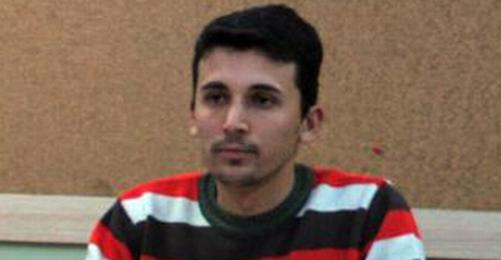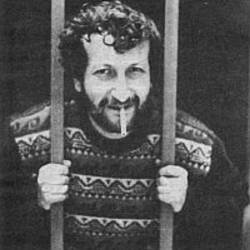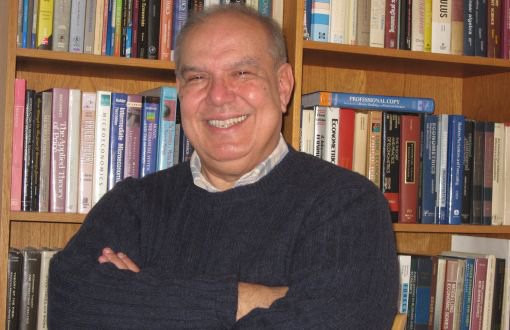In the decision of the trial about conscientious objector Muhammad Serdar Delice, the Malatya Military Court relied on the European Court of Human Rights (ECHR) as the basis for evaluating conscientious objection in the scope of religious freedom and freedom of expression.
Delice's lawyer Tayfun Çakır appreciated the inclusion of Article 9 of the European Convention on Human Rights on "freedom of thought, conscience and religion" in the reasoned decision of the military court as a very positive development.
"This decision is a precedent for all trials related to conscientious objection", Çakır commented.
"A precedent"
Lawyer Çakır announced that they received the decision of the Malatya Military Court on 7 March.
Çakır pointed to a new situation regarding the decision. He said that even though the court was not fully convinced about Delice's being a conscientious objector, the decision still included references to the European Convention on Human Rights and decisions given by the ECHR.
"For the first time, the European Commission, the European Convention on Human Rights and decisions of the ECHR were mentioned. Furthermore, the decision referred to Article 90 of the Constitution. Hence, it was defined that this could be applied in domestic law too. In other words, it was determined that the decisions of the ECHR and the provisions of the European Convention on Human Rights concerning freedom of religion and conscience can be evaluated within the context of conscientious objection", Çakır explained.
"For the first time, a court made some positive comments about conscientious objection".
"The court mentioned Article 9 of the convention. This article covers freedom of thought, conscience and religion. Therefore, this reasoned decision can represent a precedent for all conscientious objectors".
Court had doubts about conscientious objector
Çakır said that the court did not find Delice's explanation about his conscientious objection persuasive. Delice had put forward that he refused military service because he was religious and nationalistic.
"The court wrote that Delice's will for conscientious objection was not his actual will because of mental problems and because he deserted due to economic problems".
"The court alluded to the decision about Armenian conscientious objector Vahan Bayatyan. Bayatyan was a Jehovah's Witness and the ECHR gave a decision within this framework. Islamists and nationalists on the other hand had no such beliefs or opinions that would constitute an obstacle to military service, the court said".
The lawyer continued, "Moreover, Delice announced to be a conscientious objector after he had been doing his military service for five months. The court claimed that his concrete situation was not very suitable to conscientious objection.
"However, regardless of the court's doubts about Delice's being a conscientious objector, it defined in its reasoned decision that the decisions of the ECHR could be applied to domestic law within the scope of Article 90 of the Constitution. This is an utterly important development for other conscientious objectors on trial".
"Conscientious objection recognized as a right"
Lawyer Hülya Üçpınar from the Turkish Human Rights Foundation (TİHV) said that according to the court decision, a person announcing to be a conscientious objector should be member of a group which is active in the field of conscientious objection.
Within this framework, with its reasoned decision the court recognized conscientious objection as a right. Lawyer Üçpınar appreciated this as a positive development, adding that the court did not find Delice's statement on his being a conscientious objector sincere.
"Ten-month prison sentence pending at Court of Appeals"
Delice was arrested on 29 November 2011 under allegations of desertion. On 24 February, he was handed down a ten-month prison sentence on these charges. Delice was released thereupon.
Military Court Judge Lieutenant Ekin Manav mentioned Delice's release in the reasoned decision as follows:
"Taking the durations the defendant spent in detention into consideration as well as the situation of evidence, the time he was imprisoned now and the constituted deterioration of military discipline, the court concluded that the expected purpose of the detention had been achieved and decided to release [the defendant]".
Lawyer Çakır explained that Delice received a ten-month prison sentence on charges of desertion but served a total of six months and 20 days. Çakır stressed that Delice stayed in prison for more than three months on the grounds of these allegations pending trial.
He had then stayed in prison for three more months. Considering the report on Delice's change of spirits and the time he had already served in prison, he was released, Çakır said.
"We appealed the decision for the ten-month sentence. The file is currently pending at the Court of Appeals. If the court upholds the decision, Delice will have to serve an additional three months in prison". (EKN)













.jpg)


